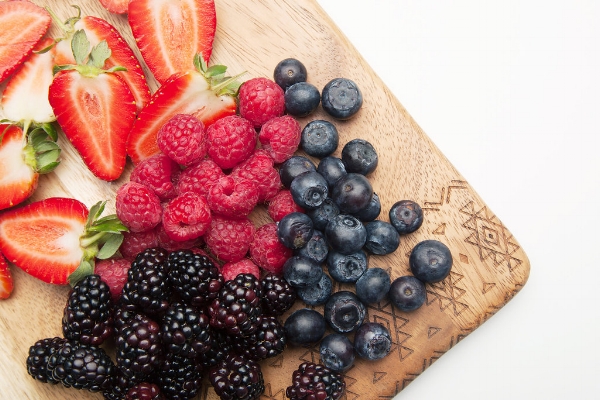
Mild iron-deficiency, or anaemia, is a relatively common condition during pregnancy as your blood volume increases by almost 50 per cent. This means extra haemoglobin is needed to transport oxygen around the body, requiring additional iron. To prevent anaemia during pregnancy, the incorporation of iron-rich foods into your diet is therefore crucial. At least three servings per day of iron-rich foods or 14.8mg of iron each day will dramatically improve and alleviate the symptoms associated with anaemia in pregnancy.
Symptoms of anaemia in pregnancy
- Fatigue
- Weak nails
- Shortness of breath
- Pale pallor
- Weakness
- Light-headedness
- Cold hands and feet
Although severe iron-deficiency or anaemia in pregnancy is associated with premature labour, low birth weight, and infant mortality, the risk is very low in the UK, since a woman’s iron levels are routinely monitored.
If you began your pregnancy with moderately low iron stores, then you need to focus on rebuilding them through your dietary choices (see the foundations of a healthy diet: part two) in order to avoid supplementation. This is a slow process, however, as our bodies can only absorb a small amount each day.

For more information on how specialist nutrition can aid your pregnancy experience, click here!
Your baby requires iron for healthy brain development and building a healthy blood supply. Consequently, your doctor or midwife will routinely screen you for iron deficiency/anaemia during pregnancy.
Did you know?
- Vitamin C increases the body’s ability to absorb Iron. Therefore try and combine iron-rich foods with those high in vitamin C.
- Iron absorption is blocked by caffeinated drinks, calcium supplements and antacids.
- In a typical western diet, only an estimated 20% of the iron available in the food we eat is absorbed into the body. This highlights the need to plan your eating to ensure optimal iron absorption.
How much do iron I need?
During pregnancy and breastfeeding, you will need 14.8mg of iron each day. Or, at least three servings, which can equate to the presence of iron in each meal you have per day. Or, one of your servings can be a simple snack of dried apricots, as they contain an incredible 2.7mg per 100g. For specialist nutritionist advice tailored to suit your specific needs, it may be beneficial to have a consultation with myself.

Good sources of iron:
The body absorbs Iron more easily from red meat than from plants and pulses. The darker the meat, the more iron it contains. This is why, typically, red meats are key sources of iron-rich nutrients. Yet plants and pulses should be incorporated into your diet as well to maintain a healthy, balanced lifestyle to aid your wellbeing and pregnancy.

Quinoa, Squash, Spinach and Avocado Salad!
- Spinach (2.7mg per 100g)
- Grass-fed-beef (2mg per 100g)
- Eggs (0.6mg per large egg)
- Lentils (3.3mg per 100g)
- Dried apricots (2.7mg per 100g)


